Forty-one years ago this month, one of the pioneers of outlaw country music, Jerry Jeff Walker, recorded a live album called “¡Viva Terlingua!” He recorded it in an old dancehall in a little Texas Hill Country town that was so near death its post office had been closed and its ZIP code retired two years earlier, back in 1971.
The town was called Luckenbach. If you’ve ever listened to much Willie Nelson or Waylon Jennings, you’ll remember how they made the little ghost town famous — and not so ghosty anymore. Legends were built in the process, and the Luckenbach Dancehall remains open and hopping to this day.
I discovered “¡Viva, Terlingua!” when I was still in high school, and I got a little obsessed with it. That record taught me to love the country music sounds I had rejected when I first fell thrall to rock and roll. I loved it even more because I knew “¡Viva, Terlingua!” had been made in a tiny place, smaller than my own hometown. And waaaay out in the country — a place where, if you were going to have a decent party, you had to invite the rednecks and the hippies.
I never made it to Luckenbach until the 1990s. It was just like I pictured it, Willie and everything. I got to see Willie Nelson play in the big field behind the dancehall. The vibe in the air was exactly as I’d imagined it with Jerry Jeff on the turntable in my teenage bedroom. It was a little slice of heaven. Never thought I’d find that vibe anywhere else.
Then I heard of Waverly, Alabama.
The population of Waverly is not much over 100, and the whole town isn’t even three square miles. It’s about 15 minutes northwest of Auburn and about 15 minutes east of Lake Martin. And if you open up Google Maps and input “Waverly, AL,” there is a lone red dot, just one business on the main drag of Patrick Street.
It’s called Standard Deluxe.
That business is there because of one man, Scott Peek, a 50-year-old graphic designer and screen printer. If you are — or become — an Inaugural Member of The Bitter Southerner Family, many of the items we send you will be printed by Standard Deluxe, right there in downtown Waverly.
Scott Peek working the t-shirt stacks at the Waverly Bluegrass Festival earlier this Spring.
Peek wound up in Waverly 24 years ago. He moved there from his boyhood home of Ozark, a couple of hours south.
“I was looking for a cheap place to rent,” Peek says. “I came down here and found an old building with an old cotton warehouse behind it.”
He and a couple of partners renovated the place and opened a graphic design and screen-printing operation — not exactly the obvious business choice to make in another dying Southern town. But despite its location, the quality of Standard Deluxe’s design and printing work has attracted clients from all over the world, including the likes of Levi Strauss & Co., Caribbean tourism vendors, and countless record labels and bands. That Alabama Shakes T-shirt in your chest of drawers, the one with the snake on it? It came from Waverly.
Lee Bains III and the Glory Fires, whose most recent album “Dereconstructed” we’re rather fond of, are longtime customers of Standard Deluxe.
“Even when he’s working with other designers, Scott has managed to cultivate in Standard Deluxe a strong aesthetic voice, one that is clearly rooted in his own sense of place and righteousness,” Bains told us from the road right after a gig in Halden, Norway, a town we have to admit we’d never even heard of before. “So that's why I love having him print shirts — and because it gives me an excuse to call up Scott and talk shit for a while every few weeks.”
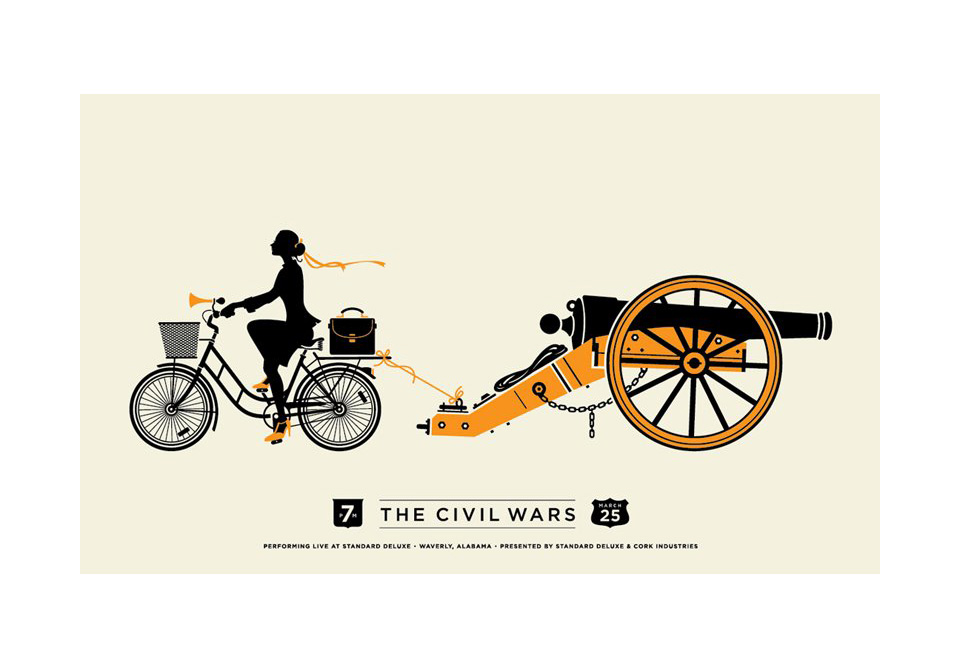
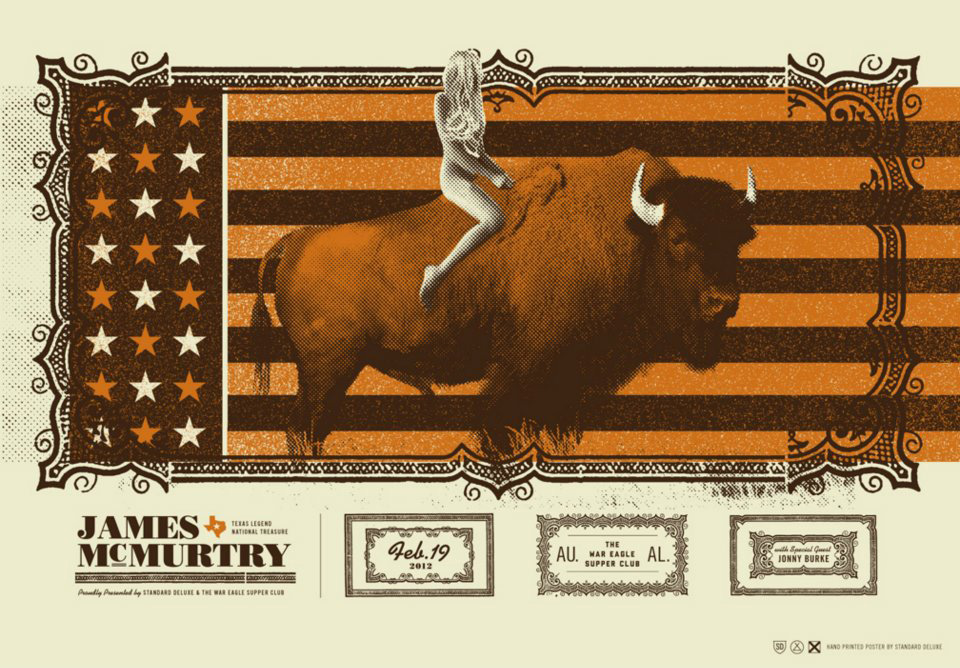
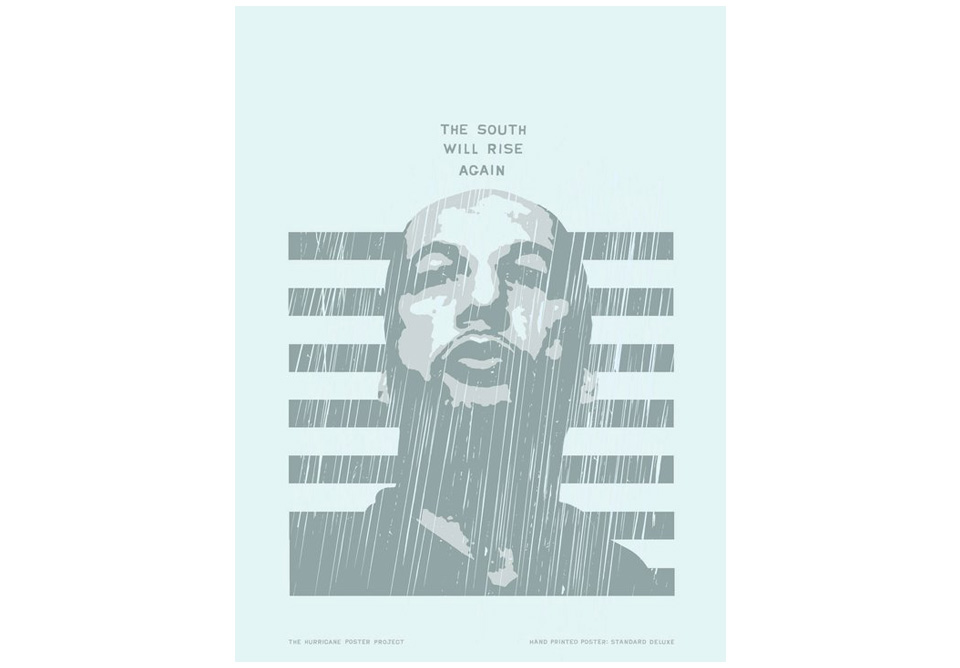
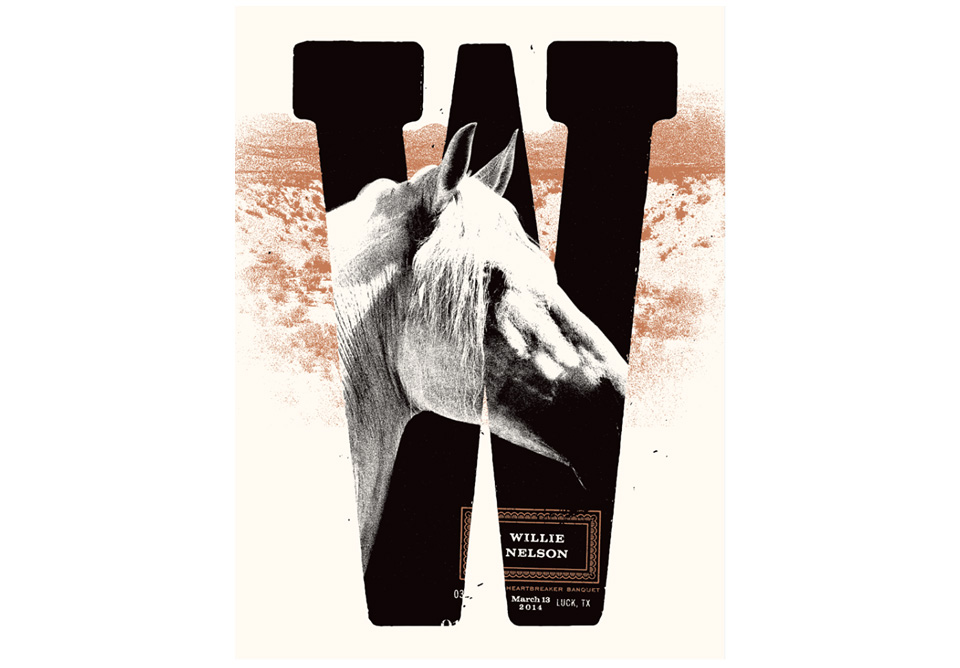
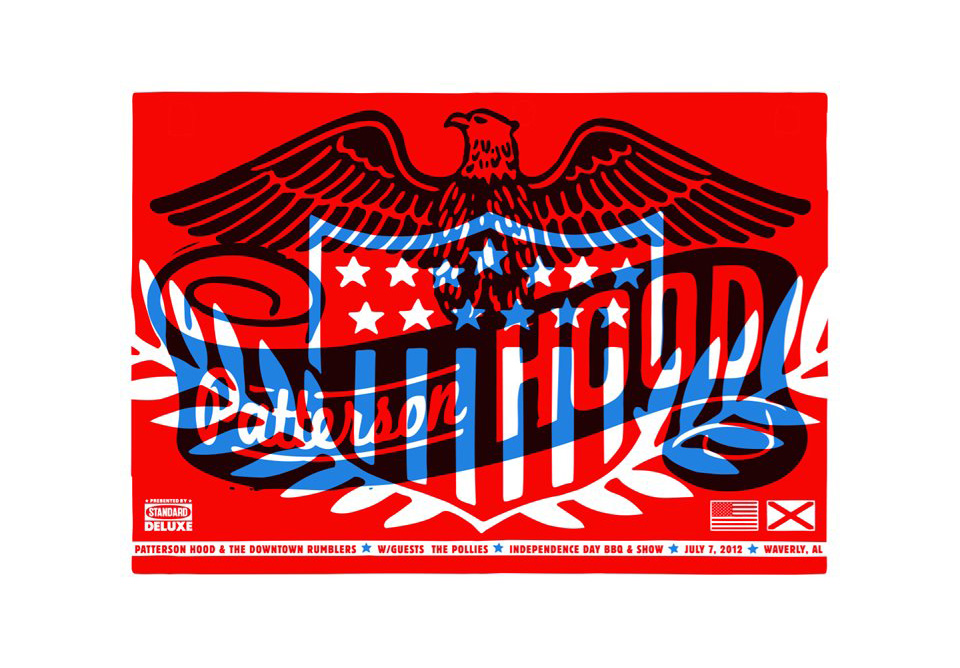
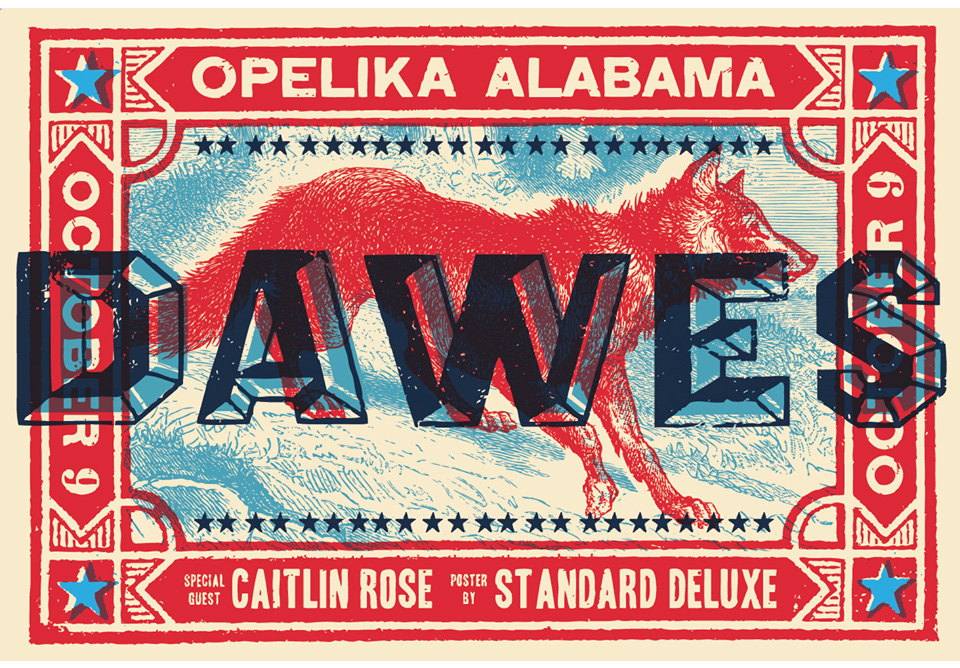
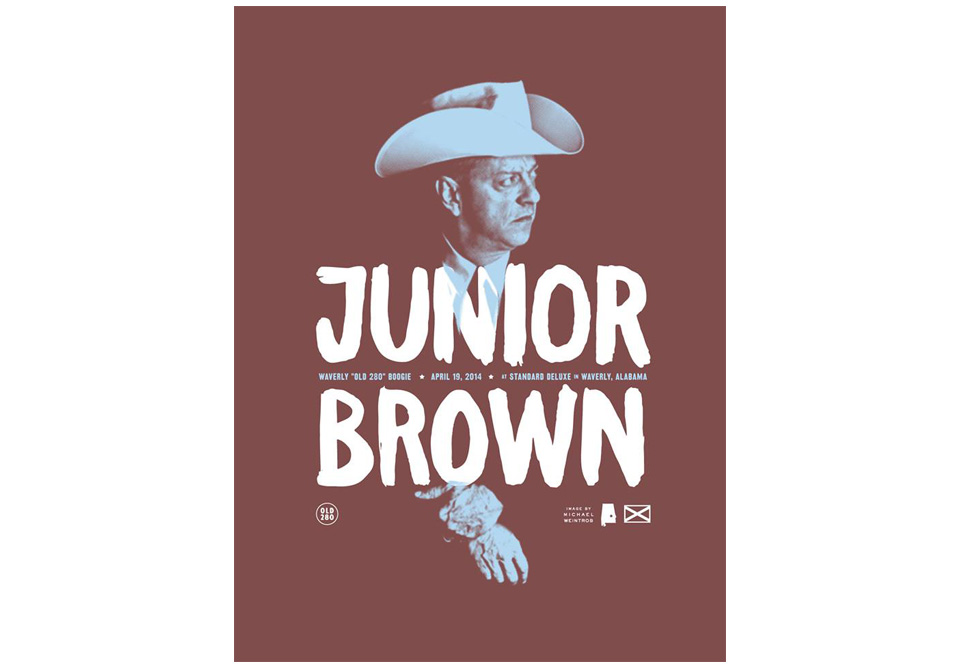
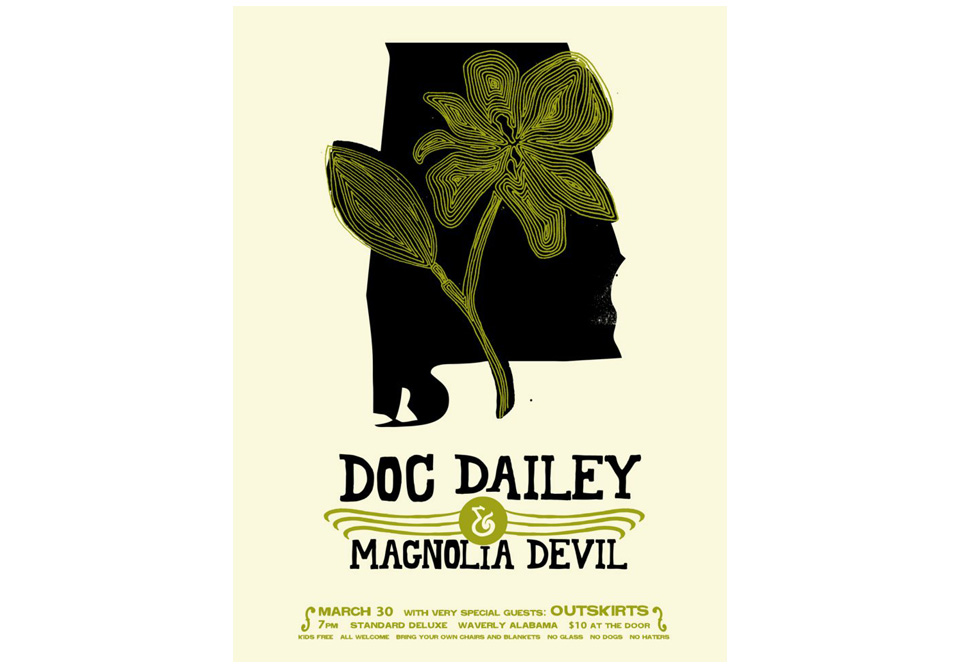
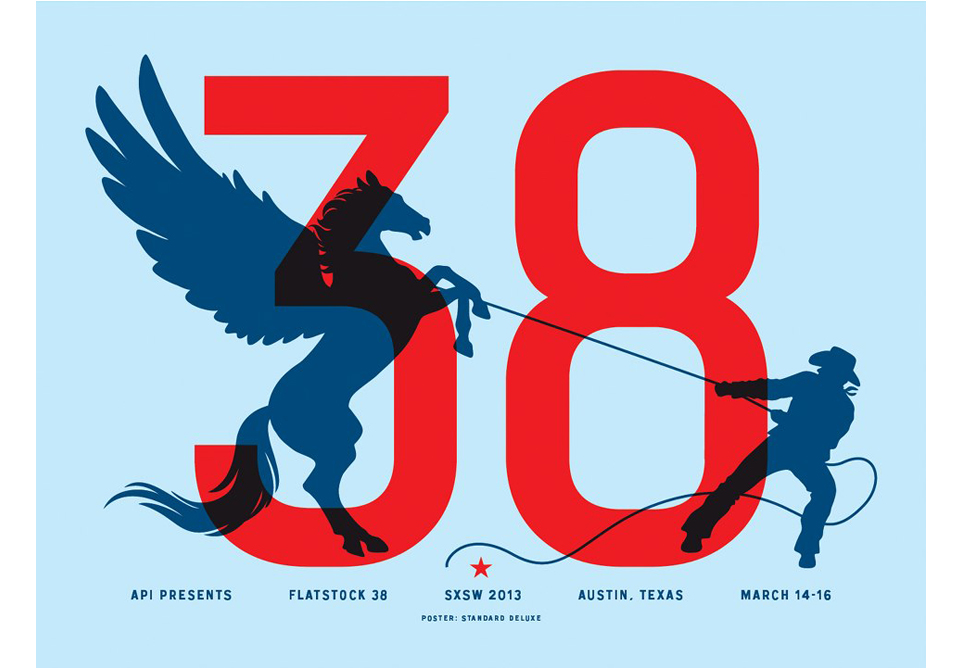
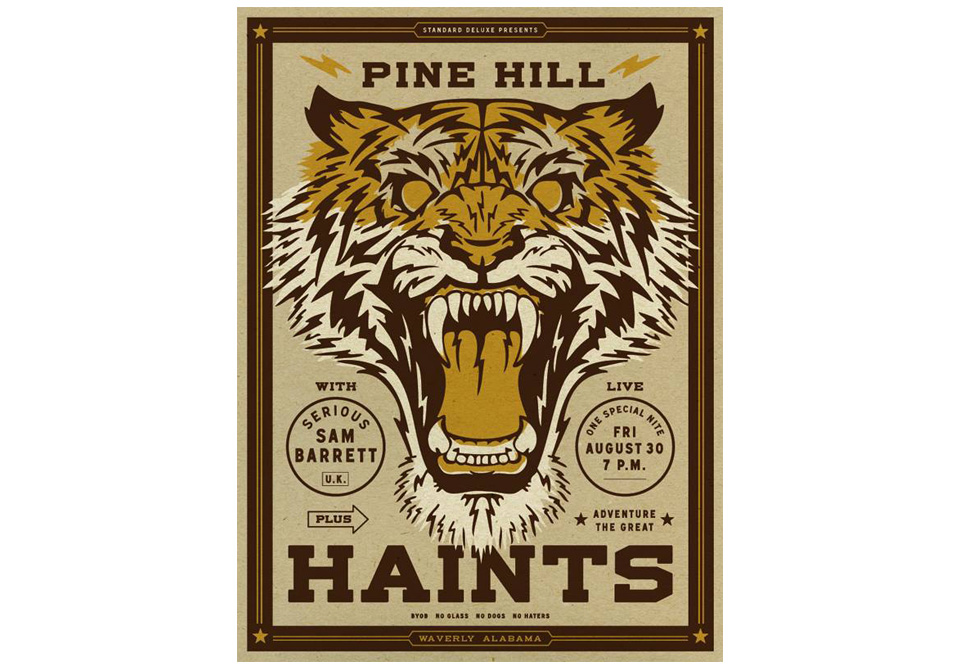
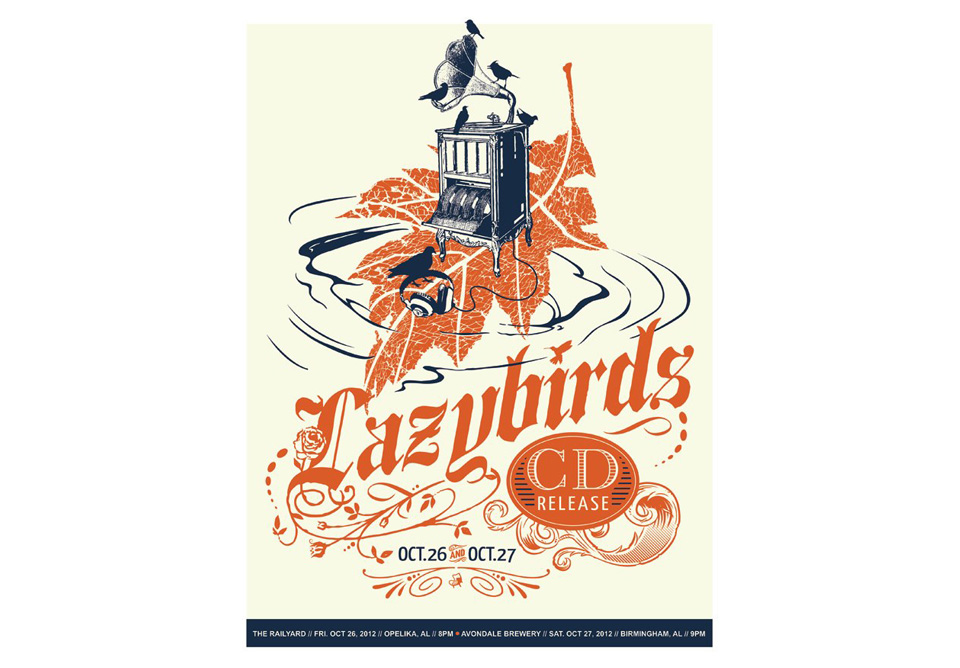
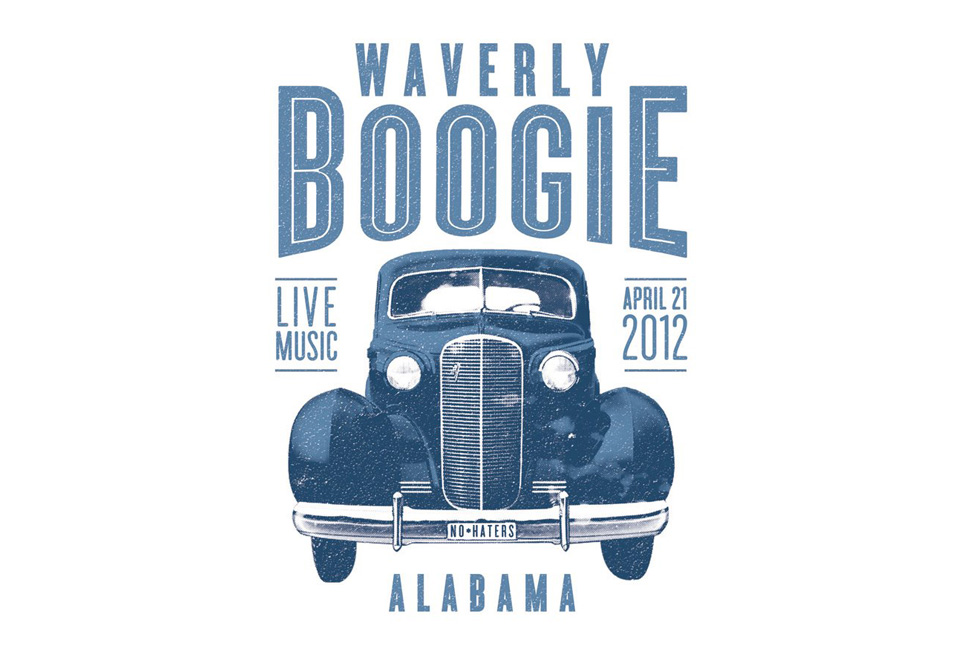
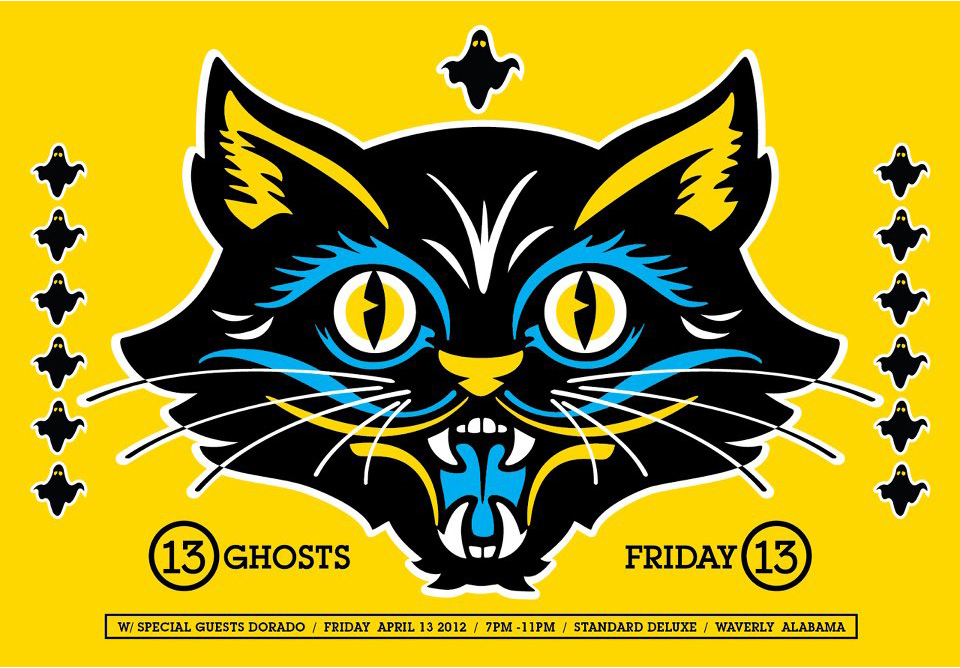
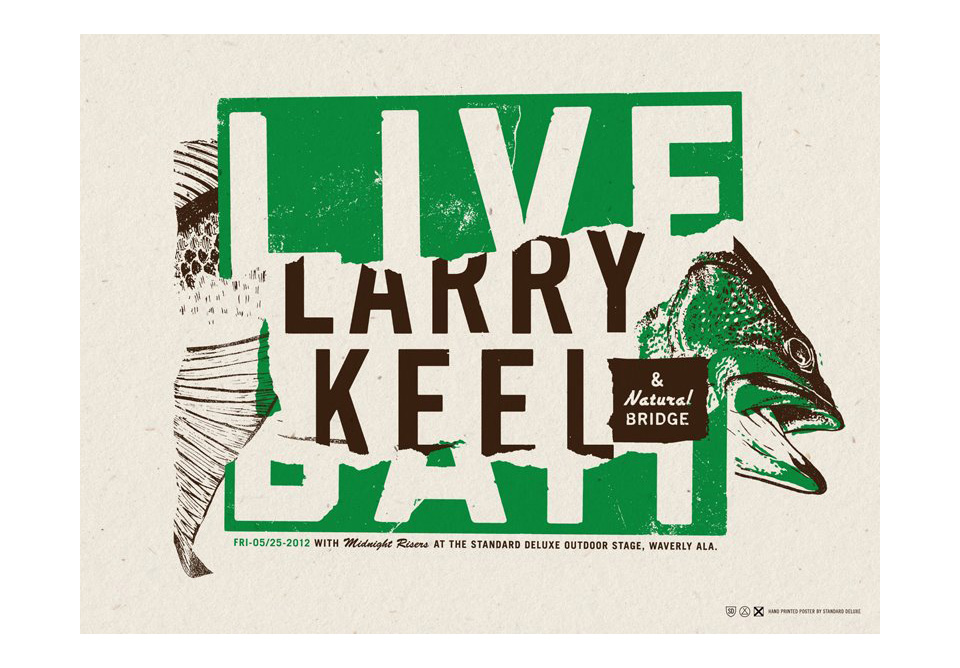
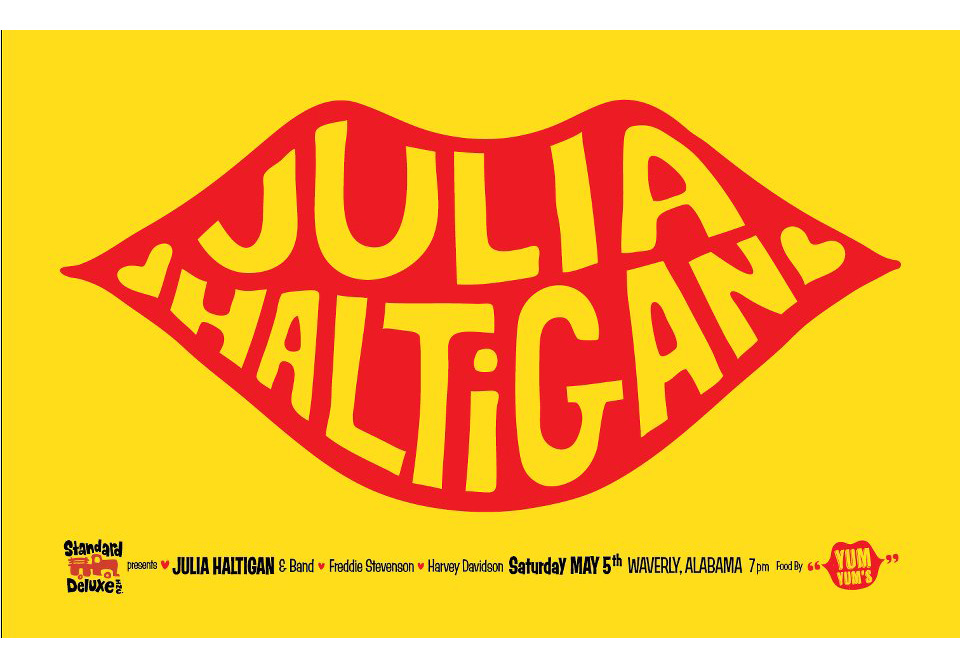
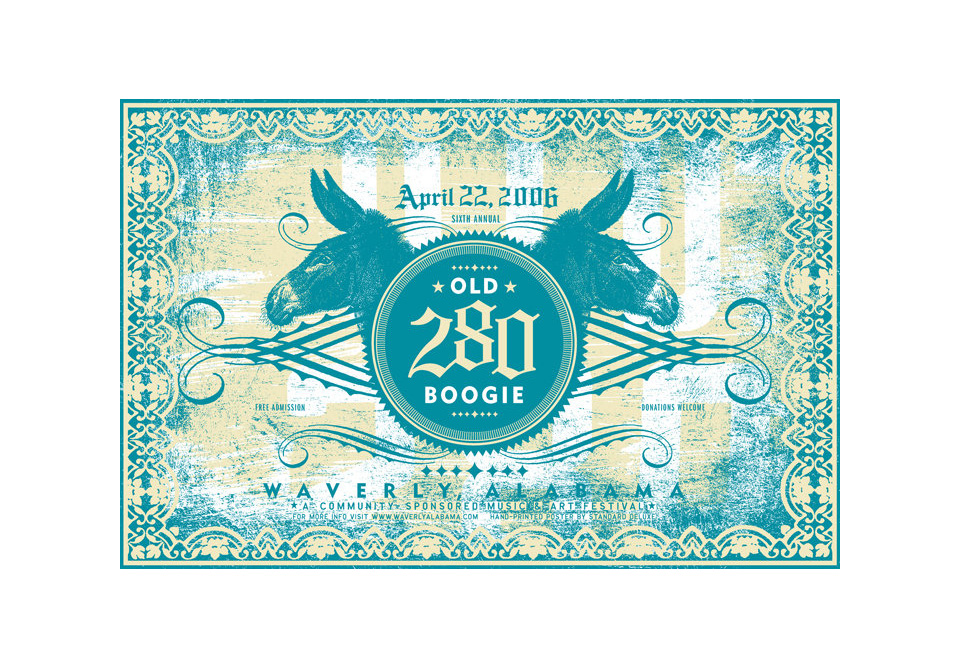
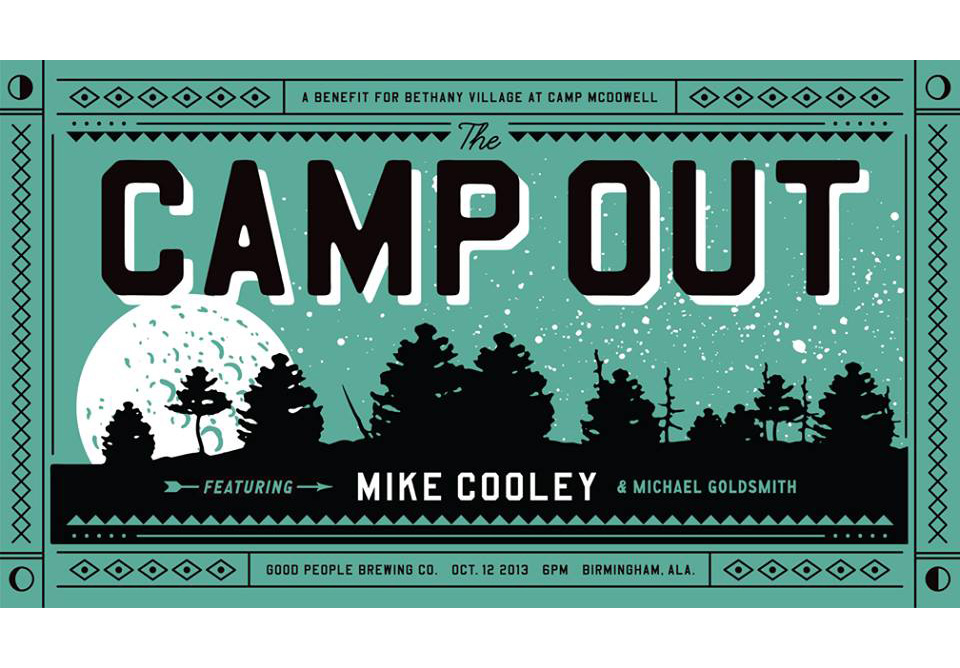
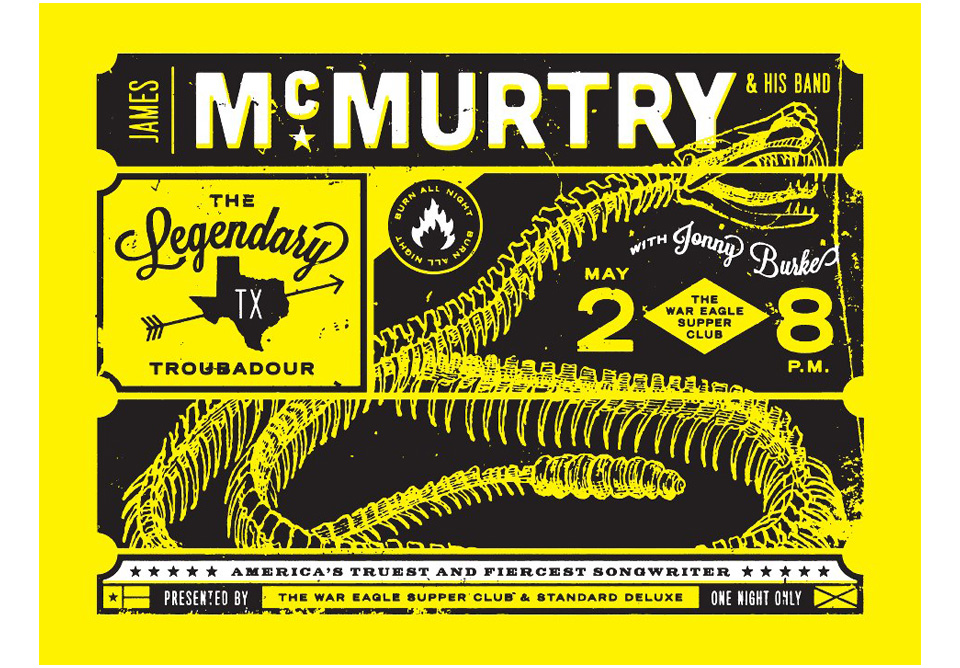
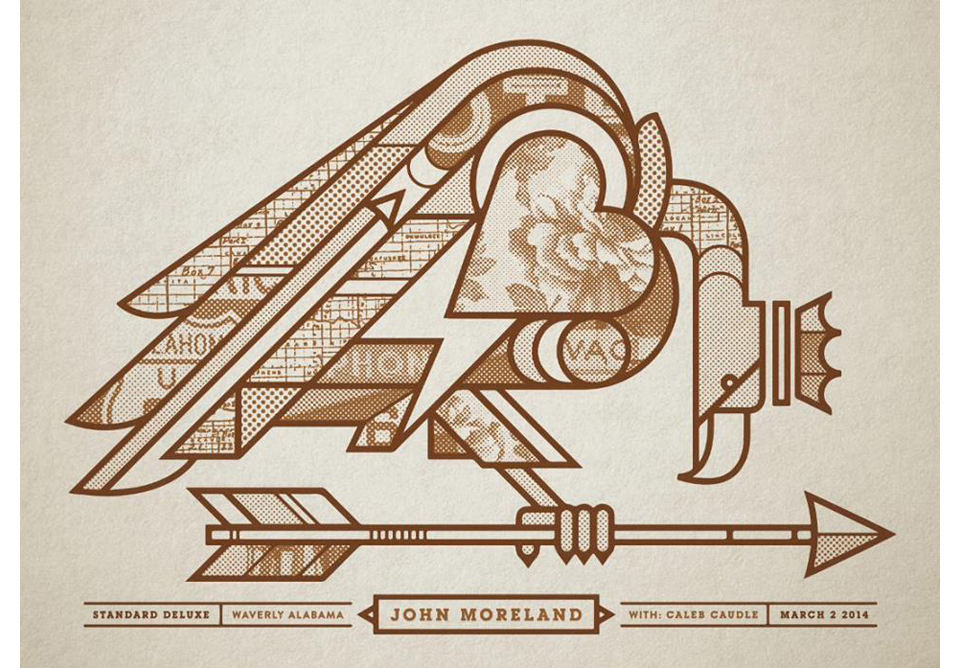
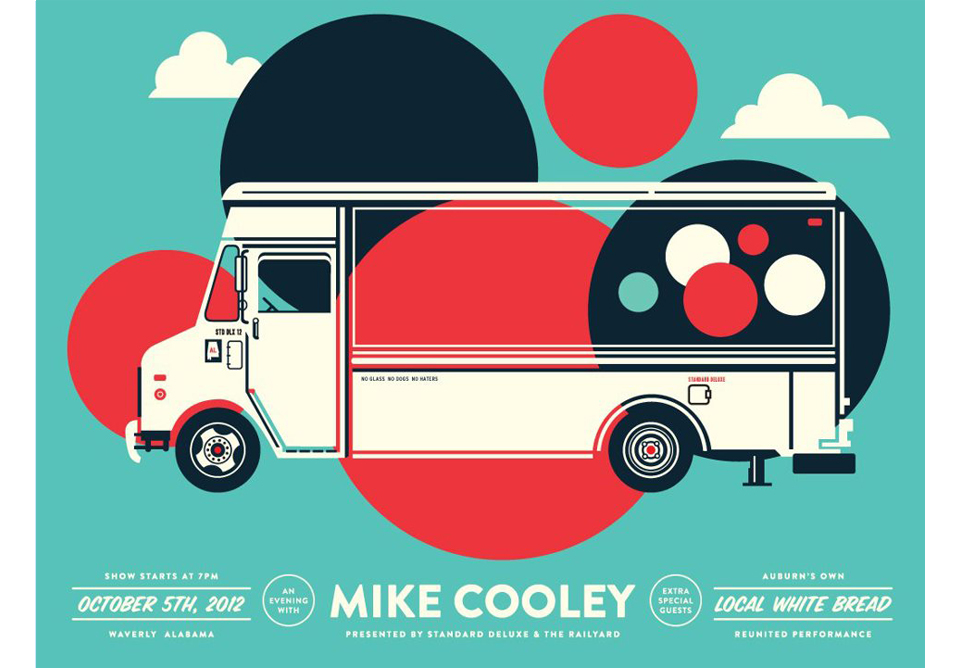
The Luckenbach vibe comes full circle every fall and spring when the Standard Deluxe grounds become the site of a semiannual happening called the Waverly Boogie, which Peek and some town folks threw for the first time back in 2001 to celebrate the State of Alabama’s decision to reroute an expanded U.S. Highway 280 south of the town — instead of right through it. The original plan assumed that Waverly was just so damned small they might as well tear it down and run the highway through. The 2001 decision saved Waverly.
The Boogies assemble great Southern musical acts and put them on a stage that Peek built under a shed out in the yard. When you’re in Waverly and someone tells you it’s time to “go out in the yard and boogie,” they mean it. The Boogies have brought great Southern musicians like soul singer Charles Bradley, the tremendous Alabama Shakes, New Orleans string band Hurray for the Riff Raff, Texas guitar slinger Junior Brown and up-and-coming songwriter Lydia Loveless to the same kind of oddball audience of country folks, rednecks and hippies that you would see at the Luckenbach Dancehall. But unlike Luckenbach, the musical vibe isn’t singularly countrified — or anything-fied, for that matter. It just accurately reflects the musical diversity of the modern South.
Folks bring their kids, listen to music, eat barbecue and pickles from the local pickle maker, Wickles Pickles, and shop for T-shirts and posters. They hang out and just generally have a high old time.
Peek’s work has earned recognition from the national design community, including a story last year in How Magazine, a prominent design chronicle. There was no grand publicity push to win such recognition. Like most things in the long life of Standard Deluxe, it happened as word about his high-quality design and printing work spread slowly over time.
The tiny rural “scene” that has emerged around Standard Deluxe may wind up being a model for how small rural towns can use the creative spirit to survive. Last winter, the National Trust for Historic Preservation visited Standard Deluxe on its PreservationNation Blog. In it, the National Trust’s Katherine Malone-France, its senior director of outreach, education, and support, wrote, “There is still much to be done in Waverly and in so many places like it around the country to preserve them for the longer term. But events like the Boogie are reminders of how positive and expansive preservation can be. At its best and most transformative, preservation is about all kinds of people using and enjoying and gaining inspiration from historic places.”
Since 1991, Standard Deluxe has evolved slowly as Peek tried to bring to life his different ideas. Originally, Peek had partners, but in the first few years they gradually fell away, leaving him the sole owner and operator of Standard Deluxe, which he has remained for the last 16 years. The national credibility for his design work hasn’t changed the way he operates. Peek still mostly just creates things he loves and then hopes other people will love them enough to buy them.
The increasingly frequent music events on the Standard Deluxe grounds have built another layer of creativity into the scene. I talked to Jay Cooper, a partner in the Southern independent record label This Is American Music, whose artists are frequently on the Standard Deluxe stage, about why he likes his bands to play a tiny place like Waverly.
“People are surprised when I say — and I say it frequently — that Waverly, Ala., is one of my very favorite places,” Cooper says. “But I say that because every time I am there, on the grounds of Standard Deluxe with friends and friends I haven't met yet, enjoying music and food and drink, I am overcome with a profound sense of well-being. How could a place that makes me feel this way not be one of my favorites?
“Sometimes we are able to work it out for an artist who doesn't really know anything about Standard Deluxe to play an event there,” Cooper continues. “I'm always curious to ask them, after they experience it, what they thought about the place and the vibe. So far, Scott is batting .1000. They all, always, say it is one of their favorite places they have played.
The view from the pews of the stage in the "Little House" on the Standard Deluxe compound. Sunday nights find the spirit moving through this place via some of the best musicians roaming the South.
“It seems like an oddball idea,” he concludes. “Assemble a property in a tiny rural Alabama town and set it up to hold events big enough to exceed the size of the whole town by fivefold or more. It doesn't seem to work at all on paper. But Waverly is more about magic, sincere hugs and easy, welcoming smiles than it is about business plans, and that's what keeps people coming. I don't know if that was Scott's plan behind that Cheshire grin, but it sure does work.”
Peek’s assessment of his business squares up with Cooper’s.
“It’s not like anybody’s getting rich out here, doing what we’re doing,” Peek says. “I was over at my neighbor’s place, one of the guys that owns Wickles Pickles, last night, talking about all the possibilities. I think more than maybe any time since I’ve been out here, there’s more of a group of like-minded people around. It’s a strange mix of ages and stuff. It’s good. We’re just poking along. I’ve got grand plans for all my stuff, but we’re paying for it as we go along.”
The Fall Boogie is set for Sept. 13, and its headliner will be Nikki Lane, a no-bullshit young country singer whose debut album, “All or Nothin’,” was produced by Black Keys leader Dan Auerbach. Hundreds will gather, and between bands, they’ll wander through the old cemetery nearby or browse through the Standard Deluxe store and buy some of Peek and company's designs.
“We screen-print pretty much anything for anybody on paper or garments,” he says. “And we do music events. It’s sort of our thing.”
Which makes Standard Deluxe precisely the kind of fiercely independent Southern business The Bitter Southerner is proud to partner up with. Inaugural family members: Remember when you first put on that T-shirt that you would do well to visit the place where it was printed. All you’ll need to do is grab a beer and some barbecue, go out in the yard, and boogie.












